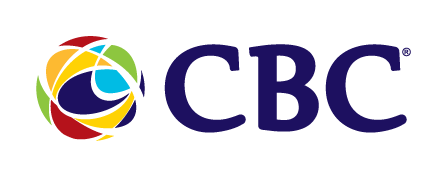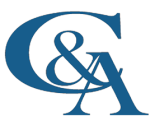Fewer citizens of T&T are attending higher educational institutions as the changes to the Government Assistance for Tuition Expenses (GATE) programme has meant the door is closed for some of them and the country’s universities are bracing for the potential fallout of government’s planned review of the programme.
The Sunday Business Guardian reached out to several providers of tertiary education and all admit that since people have to do a means test to qualify for GATE and since it is not in the main, available to people doing post-graduate studies, institutions have seen their funding drastically reduced.
Now the government has cut $35 million from University funding and is to review the operations of the scheme. Added to the challenges posed by the general state of the economy as a result of COVID-19, this has caused serious worry for many institutions.
Responding to questions posed by the Sunday Business Guardian (SBG), Professor Brian Copeland, Pro Vice Chancellor and Campus Principal, The University of the West Indies (UWI) St Augustine said UWI has had to grapple with the sudden shocks that COVID-19 presented since March 2020 and would have to wait on the decision of the government to determine what adjustments needed to be made.
Copeland said: “We also would hope that any new adjustments to GATE would not affect enrolment but that persons wishing to pursue higher education also would, mindful of the benefits of an investment in a good University education, consider availing themselves of loans from banks and credit unions.”
In an interview with the SBG, University of T&T (UTT) Vice President of Corporate Operations Dr Zameer Mohammed said students looked forward to an easing of their tuition fees with assistance from the GATE programme “and with the further cutback as we’ve been hearing—this is going to pose a challenge for both students for enrolment and for financial returns.”
UWI Roytec Executive Director (ED) Wendy Augustus articulated to the SBG that while the pandemic has propelled the institution to become stronger, the financial and enrolment implications of GATEs review “will be dire.”
Augustus expressed that the hope that “full consideration will be given to issues of equity, especially so for those for whom equality of opportunity does not mean equality of access.” According to the UWI Roytec ED, human capital development is a necessity for driving the economy and this should inform any decisions made by the government relating to funding.
She added: “Hopefully, educators would be involved in the decision making and the population given time for any likely adjustment.”
This is the second disruption likely to come about as it pertains to the GATE programme as the first was the introduction of means testing—which allowed students with greater overall financial constraints to receive more funding than those that have the ability to offset costs.
However, means testing has had implications as well. While UTT reported that its September 2020 admission of students was promising, Dr Mohammed contended that there was a general flattening of enrolment for the new intake of students. He added: “That has to do with a number of things: with GATE issues and accessibility to GATE, you know it’s now a means test, so its not as enabling as it used to be for obvious reasons—financial constraints.”
Mohammed said while UTT relied on various sources of revenue generation (transfers from the government, non-academic offerings to private sector and international grant funding) its current financial position is challenged like all other higher education institutions in T&T and in the global industry.
The CEO of the UWIs Arthur Lok Jack Graduate School of Business Mariano Browne told the SBG that institutions once had the ability to expand because of GATE funding, but now as funding is decreasing and has already decreased—so would the absorption size of students coming into the system.
He added that education is an investment in the future, and when the future is uncertain prospective students either postpone their education or match their education choice with the limited amount of funds they possess.
With an economy that was already depressed before COVID-19 and the contraction steepening as the pandemic causes greater disruption, Browne revealed that the graduate school’s income has fallen by 50 per cent and it also had to adjust its expenses by 50 per cent as well. He added: “And that means at every level.”
As the prospect of a decrease in GATE funding looms large, Browne has contended that it will impact all public tertiary education institutions alike.
However, Dr Gillian Paul, President of the College of Science, Technology and the Applied Arts of T&T (COSTAATT) highlighted to the SBG that the university had noticed for a couple of years that the GATE reimbursements were not keeping pace with the amount of revenue generated each year.
She added that the board and management has been at work on changing the school’s business model to sustain the operations, which is not heavily dependant on GATE, using the necessary transition to online course delivery due to the pandemic to tap into new markets and opportunities (UTT and UWI Roytec expressed the same to the SBG).
The review of GATE, Paul said, “is understanding in a way because Government is looking at all its commitments.” She continued: “This year is the tough year where we have to make choices.”
Paul recognised that COSTAATT is exposed to higher levels of risk during this period because of its distinctive mission to support prospective students who possess the aptitude for tertiary education but are financially impaired. Therefore, with financial aid funds under strain in a time of severe economic decline, Paul implied that this mission is now threatened in light of developments with GATE.
However, the COSTAATT president expressed that corporate bodies in T&T know the quality of work produced at the institution and she remained confident that they would assist in scholarship funding for students who would not be able to afford tuition.
Meanwhile, President of the University of the Southern Caribbean (USC) Dr Hilary Bowman indicated to the SBG that if negative, the review would have a tangible effect on the institution that has already been financially hit.
Continues on SBG5
The principals of both USC and the UWI St Augustine have expressed that significant revenue losses were incurred as commercial activity on the campus has been halted and on-campus dormitories have also not been utilised because of the transition to online teaching.
Nonetheless, both of the institutions (UWI St Augustine and UTT) alongside UWI Roytec and UTT have indicated that enrolment has been steady and made no mention of classes being cancelled. The ED of UWI Roytec mentioned that “classes would have been pooled and class size increased to avoid class cancellation”.
This was not the case with some private institutions like the School of Business and Computer Science Global Learning Institute (SBCS GLI) and CTS College of Business and Computer Science (CTSCBCS) had to cancel classes.
While ED of CTSCBCS Ravi Ragoonath said that some classes were not cancelled because of demand but because of International partnering bodies being unable to facilitate the quick transition to online learning, the ED of SBCS Robin Maraj said that many of the practical courses at the school were cancelled because they are laboratory based.
This problem has also challenged COSTAATT, where Paul said that many of the students that were nearing graduation for courses like nursing, theatre and social work were struck with disappointment due to COVID-19 havoc. While some private institutions do not receive GATE funding – COVID-19 has disrupted not only their classes, but cash flows. Director of the School of Accounting and Management (SAM) Dr Nigel Fulchan described the pandemic to the SBG as the “prefect storm” that caused a decrease in student enrolment – which meant lower revenues for the school.
Fulchan said: “In the middle of recruiting students the country was going through an election campaign, then a budget, the delay and eventual uncertainty of CXC results and of course in the middle of a pandemic all contributed to lower than average student enrolment.”
In spite of this, Fulchan said that the board of SAM made a decision to keep the salaries of staff during the current period at the same levels. He added that the impending reduction in GATE funding now gives institutions an opportunity to compete not on price but on quality of education and service.
In order to pivot during this time as a private institution, CTSCBSC ED Ragoonath disclosed that the organization’s agile business structure allowed it to seize opportunities to offer primary school and secondary school courses. It has also attracted students from Tobago and rural areas for its tertiary level offerings.
Maraj expressed to the SBG that SBCS GLI will be reducing its course offering to compete with only courses that will be able to provide students with a competitive edge in getting a job. He argued that while many institutions offer courses that are good, they may not translate into job possession in this increasingly competitive market.







